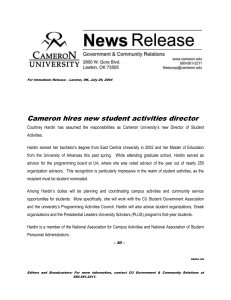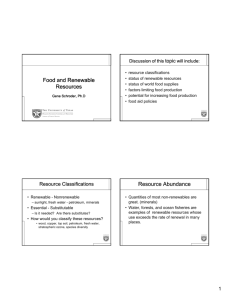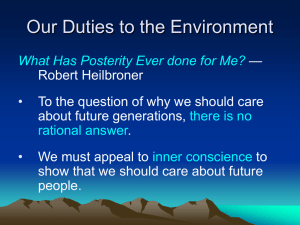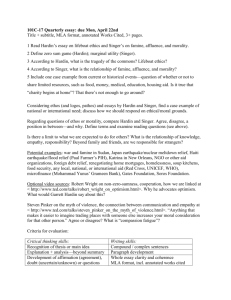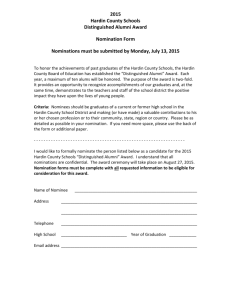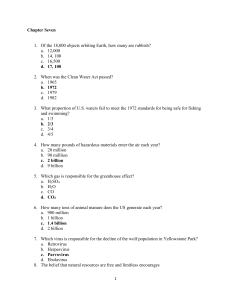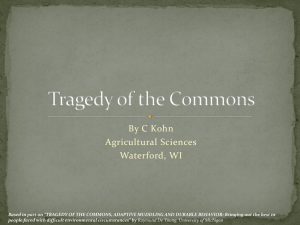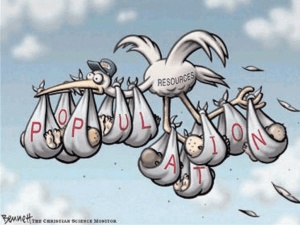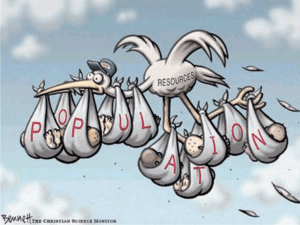Tragedy of the Commons.indd
advertisement
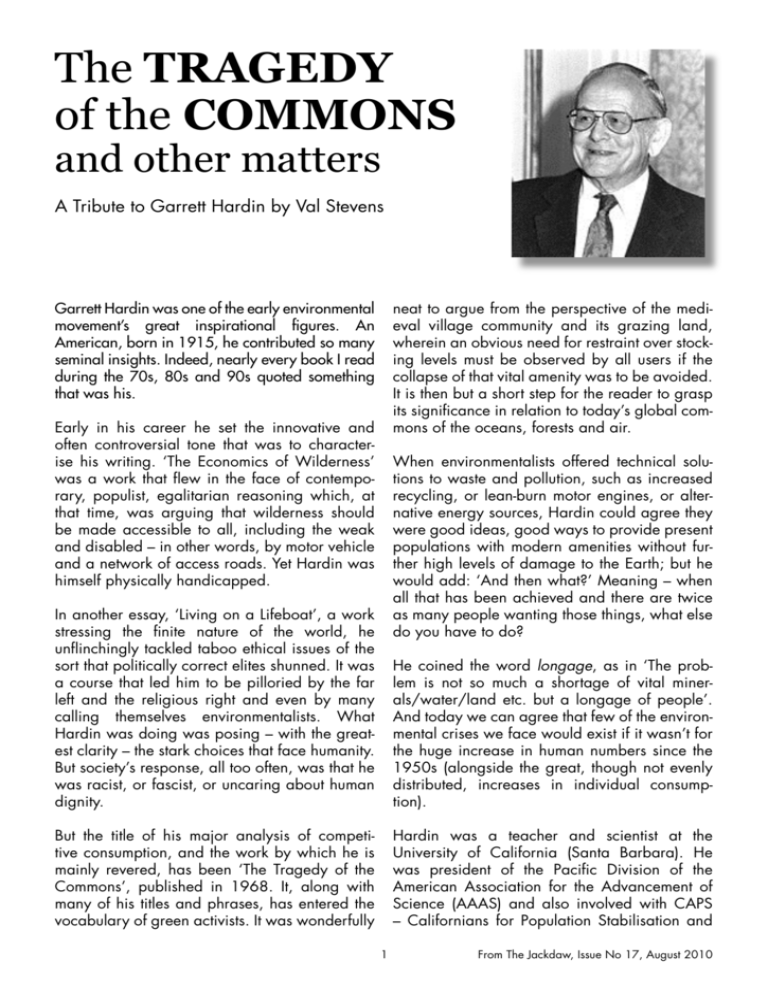
The TRAGEDY of the COMMONS and other matters A Tribute to Garrett Hardin by Val Stevens neat to argue from the perspective of the medieval village community and its grazing land, wherein an obvious need for restraint over stocking levels must be observed by all users if the collapse of that vital amenity was to be avoided. It is then but a short step for the reader to grasp its significance in relation to today’s global commons of the oceans, forests and air. Garrett Hardin was one of the early environmental movement’s great inspirational figures. An American, born in 1915, he contributed so many seminal insights. Indeed, nearly every book I read during the 70s, 80s and 90s quoted something that was his. Early in his career he set the innovative and often controversial tone that was to characterise his writing. ‘The Economics of Wilderness’ was a work that flew in the face of contemporary, populist, egalitarian reasoning which, at that time, was arguing that wilderness should be made accessible to all, including the weak and disabled – in other words, by motor vehicle and a network of access roads. Yet Hardin was himself physically handicapped. When environmentalists offered technical solutions to waste and pollution, such as increased recycling, or lean-burn motor engines, or alternative energy sources, Hardin could agree they were good ideas, good ways to provide present populations with modern amenities without further high levels of damage to the Earth; but he would add: ‘And then what?’ Meaning – when all that has been achieved and there are twice as many people wanting those things, what else do you have to do? In another essay, ‘Living on a Lifeboat’, a work stressing the finite nature of the world, he unflinchingly tackled taboo ethical issues of the sort that politically correct elites shunned. It was a course that led him to be pilloried by the far left and the religious right and even by many calling themselves environmentalists. What Hardin was doing was posing – with the greatest clarity – the stark choices that face humanity. But society’s response, all too often, was that he was racist, or fascist, or uncaring about human dignity. He coined the word longage, as in ‘The problem is not so much a shortage of vital minerals/water/land etc. but a longage of people’. And today we can agree that few of the environmental crises we face would exist if it wasn’t for the huge increase in human numbers since the 1950s (alongside the great, though not evenly distributed, increases in individual consumption). Hardin was a teacher and scientist at the University of California (Santa Barbara). He was president of the Pacific Division of the American Association for the Advancement of Science (AAAS) and also involved with CAPS – Californians for Population Stabilisation and But the title of his major analysis of competitive consumption, and the work by which he is mainly revered, has been ‘The Tragedy of the Commons’, published in 1968. It, along with many of his titles and phrases, has entered the vocabulary of green activists. It was wonderfully 1 From The Jackdaw, Issue No 17, August 2010 The Tragedy of the Commons, a tribute to Garrett Hardin – continued CCN – Carrying Capacity Network. 1993 saw the publication of his book ‘Living within Limits’ and around this time the editors of the greatly esteemed journal ‘Science’ announced that Hardin’s paper ‘The Tragedy of the Commons’ had been reprinted more times than any other piece in the history of that publication. Hardin and his wife, Jane, both in poor health, took their own lives. I presume that they felt this was an act of generosity to the overburdened earth, when they had reached an age when they could not contribute as much as they desired to humanity’s future. What a supreme act of integrity and courage. In writing this review I am indebted to Tim Murray’s kindness in sending me a tribute to Hardin written by his friend Leon Kolankiewicz, a lifelong wilderness devotee, scientist, and admirer of Hardin. The full tribute can be found on the website of the Garrett Hardin Society, where ‘The Tragedy of the Commons’ and other works can be viewed: www.garretthardinsociety.org 2 From The Jackdaw, Issue No 17, August 2010
